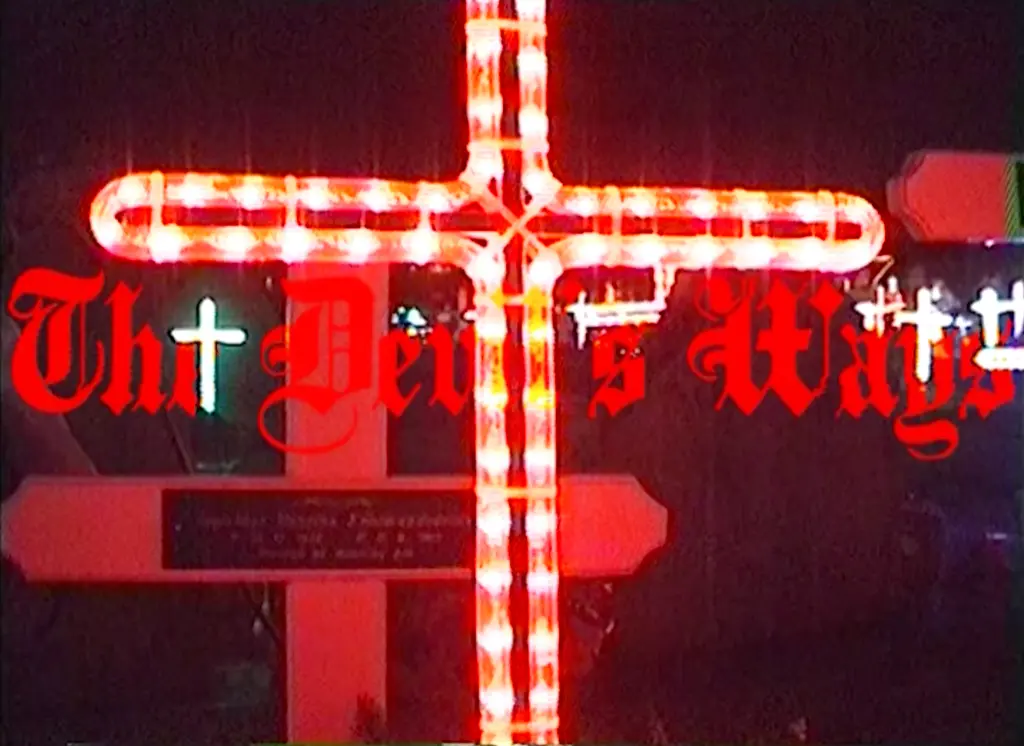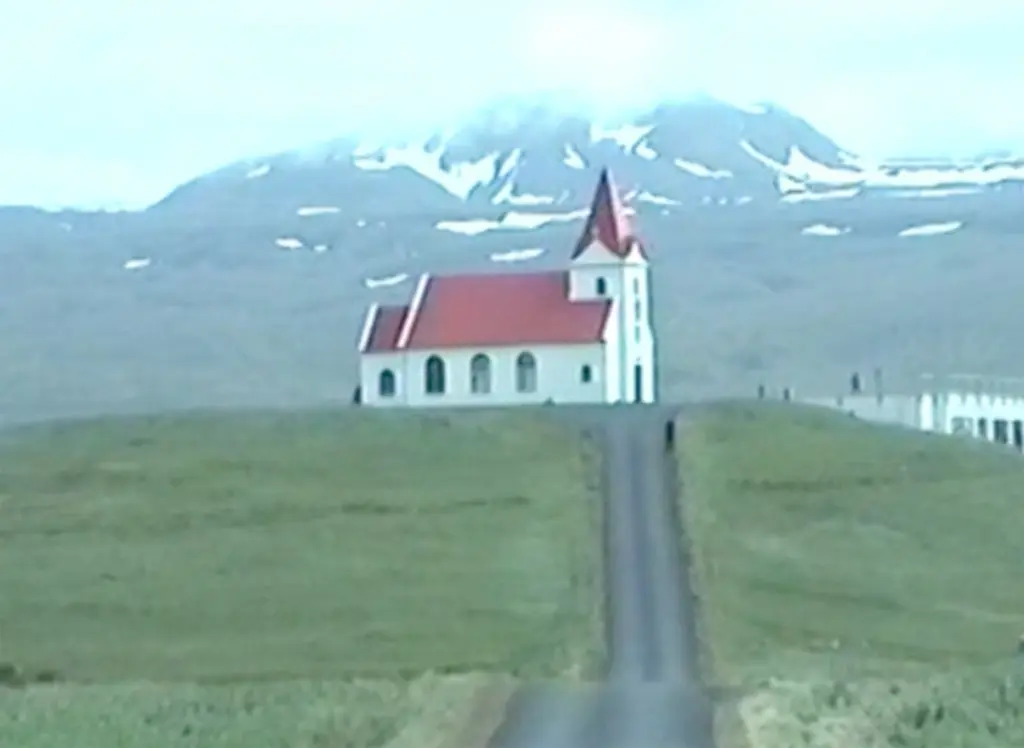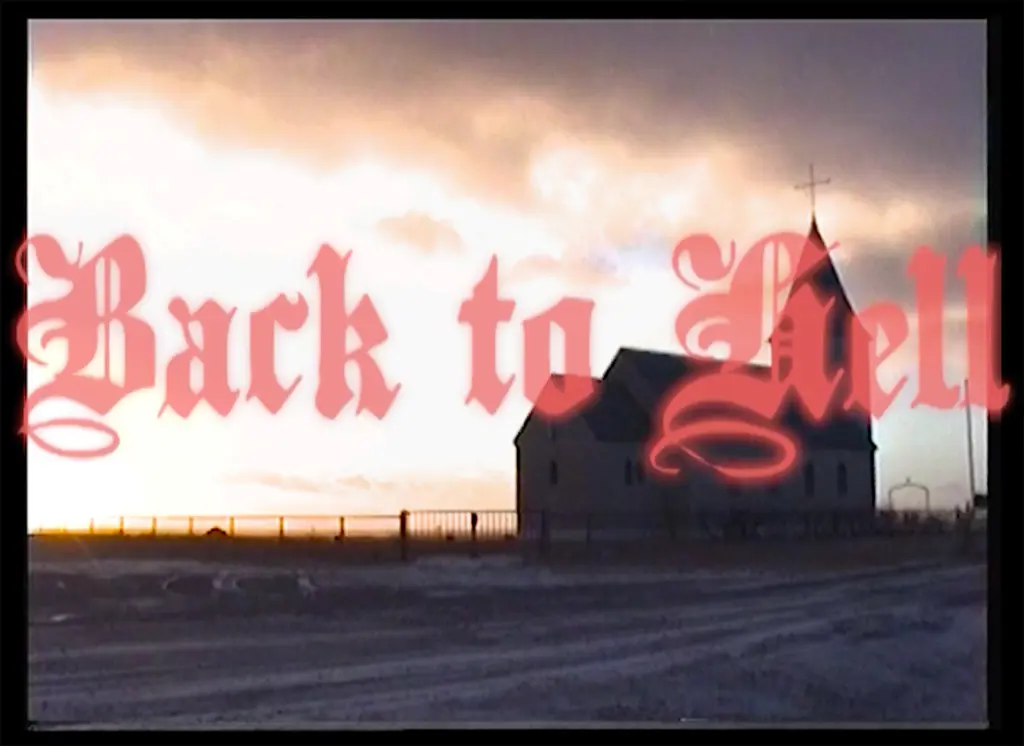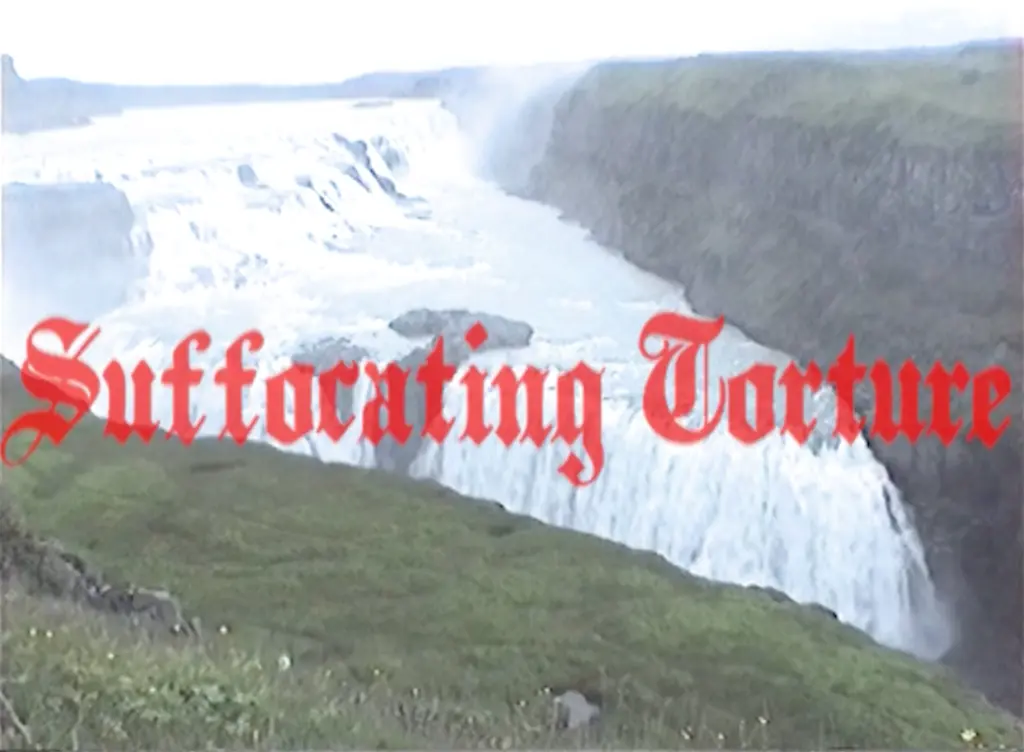Trauma Hurts: a film of family, love, loss and hope

Artist Tan Gillies’ new film explores the intense highs and lows of growing up, presented through the mysticism of Iceland, and the chaos of London.
Culture
Words: Charlotte Roberts
Over the past year, London-based artist Tan Gillies has established himself as an idiosyncratic voice, moving rapidly between beauty and darkness, love and pain. His mixed media work, flipping between paint, photography, film and installations, is always told through inward-looking, brutal honesty, exemplified first in his debut photobook Cold Bones – released in early June – which weaved together Gillies’ path to drug addiction: a no holds barred documentation of violence, grief, love, loss and hazy hedonism.
After Gillies’ addiction worsened, he began working on Trauma Hurts, a short film of hope, redemption, faith and mental health. Using personal archive footage set against dramatic mountainscapes, the film journeys through his homeland, Iceland, connecting threads between the eerie silence of rural landscapes and the chaos of his life in London. “Iceland saved my life in a lot of ways,” Gillies says. “It has given me so much. I don’t think I’d have survived without it.”
The result is a stark, intimate, often mystical look at an adolescence spent chasing the intoxicating highs and lows of growing up, escapism and oblivion, whilst ultimately seeking sanctuary in the legacy of Icelandic folklore and mythology. For Gillies, the making of this film was a long-awaited opportunity to let go of the darkness of the past and move towards the infinite possibilities of imagined, brighter futures.
What got you into art in the first place?
The first time I was ever inspired by a piece of art was music, actually. When I first heard Nirvana when I was like seven, it changed my life. Art and music were things that completely changed how I felt and I was addicted to that. I liked being able to escape at that age. I was escaping from my reality through music and art from a very, very young age.
You started working as an artist a bit later on in your career after working in a corporate environment for most of your life. What was that transition like?
There were elements of it that were quite creative. I guess that, and the security and money, kept me in it for so long. And I got to travel a lot. I liked that. All the way through that I’d be doing graffiti. As an artist, I have always felt a need to make things in order to deal with how I feel. I always have to have a physical creative output, whether it’s tagging a wall or this film or smashing a window, I feel like they’re all the same kind of thing. When I went freelance, I knew I wanted to make art full time and then the book came out of nowhere when I was deep in my addiction. I didn’t think too much about it at the time, similar to how the film evolved. These two projects are defining who I am at the minute. I didn’t know things would be received the way they have been. The love I’ve been shown has been overwhelming at times.
Now you’re sober, how do you indulge in the chaos without the drugs as an outlet?
Well, I have a window into that world through my youngers, my boy was breaking into lidos at 5am and doing mushrooms and all that madness you do in your early 20’s this weekend, I fucking love it. I’ve accepted that I can’t do that stuff anymore myself, but I find comfort in knowing it still happens. I have to keep myself in check, though, as all my instincts go to the lunacy and it’s not always easy not being a part of it in the same way anymore, but now I channel it into my art and work as best I can.




The film feels like a love letter to Iceland.
Iceland saved my life in a lot of ways. If you took out my Icelandic heritage out of the equation, I don’t see how I would have survived. I had a physical place of safety to escape to. I only remember my dad coming to Iceland like once. For two or three months a year, we had a stable place to go, even though there was family stuff out there too it was where I felt safe. Iceland let me know there was always another way, like when I was getting into trouble as a teenager my mum would try and send me out there to straighten me out, it didn’t really work at the time haha but the seed was always there that life wasn’t all about selling drugs getting arrested and all that stupid shit you know. It balanced me out and I was culturally more aware than some of the people I would hang about with in my youth, and I’m forever grateful and eternally proud of my heritage. Iceland gave me so much, I feel like its the good side of me, the brighter warmer side.
What is the significance of the cemeteries that feature quite heavily?
So at Christmas from 1st December ‘til 7th January, the whole country lights up every cross in the cemetery to remember the dead. My grandparents are buried there and also my best mate who died when he was 22 in a car crash. I’ve always been obsessed with cemeteries – I used to fall asleep in them sometimes. I always found them really soothing.
Nostalgia feels very important to you.
I suffer from the disease of nostalgia, I think. I’ve always had a big fetish for nostalgia but it can be really bad for me. Reality is the hardest place to be sometimes. The film is reflective so it’s obviously nostalgic, but what it’s also doing is showing me moving on from that and letting go of the past for the first time. I’ve had a lot of dark memories that I carried around with me my whole life and I used them as an excuse for everything and to justify my bad behaviour. It would always be someone else’s fault and I think the film has been really good for finally allowing me to let go of that notion.
Trauma Hurts is dedicated to your friend Charlie O’Reilly who passed recently. What was the significance behind that?
Charlie was one of my first ever friends. We met when we were six years old and did everything together and shared every interest: music, girls, skating, films, how we dressed… We started graffiti together in 1997, our mums are really close and I spent a lot of time in his house when I was a kid and vice versa. We shared a lot of early trauma, too. It’s really hard to answer this question if I’m honest, but he was my brother and, like me, a drug addict who just tried his best to medicate the emotions that he didn’t have the tools to understand or deal with as a kid.
Neither of us really stood a chance, and I don’t know how anyone expected us to turn out any different to how we did, considering what we had to manage as little kids. He was an incredibly gifted tattoo artist and graffiti writer, and was recently a father to a beautiful boy. He overdosed and died on June 21st 2020 in the middle of me making this and it broke me in a way I didn’t think possible – I have in no way come to terms with losing him like that and I don’t think I ever will. After he passed, I was defeated. I was in the crematorium toilets at his funeral literally on my knees sniffing lines and in tears praying for help. Those times are indescribable. A few weeks after that is when I managed to have my moment of surrender and get the help I needed. So this work and the rest of my life is dedicated to his memory, my beautiful boy. Trauma really does fucking hurt.
What do you want people to feel when they watch the film?
I want people to cry! [Laughs]. No, I don’t really know to be honest. I want people to feel hopeful, because that’s how I feel about it. I want it to evoke emotion and to take whatever they want from it. If people can relate to similar childhoods or similar patterns, or people hear a bit of their story in what I’m saying, then that’s great. As that’s how you start a conversation and conversations, as simple as they are, can be the line between life and death. I’ve had very close friends kill themselves because they felt they couldn’t talk about their problems and thats very fucking sad. It’s so important to normalize discussing things like domestic abuse, mental health and try to show the next generation the way.
So, what’s next?
Staying clean and painting. I always painted and now I’ve had a studio for about a year. This year I’m doing a show of my studio work. I want it to be more than an art show though, and more of a glimpse into who I am and, through that, give people an insight into the detailed view of men’s mental health and addiction issues. I’m also writing a feature film. I’ve had an idea for over a decade now, but I’ve never acted on it. Through making this film and the book I no longer see limits to how I should express myself anymore, I’ve realized the power in handing my life over to a power greater than myself on a daily basis. The universe has plans that are bigger than me, that’s for certain.





